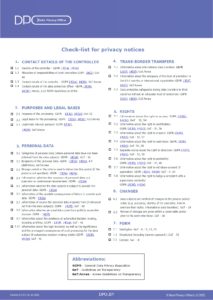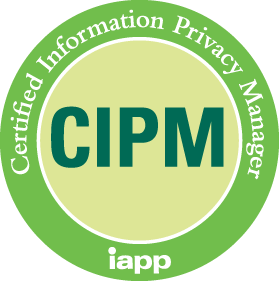(61) L-informazzjoni fir-rigward tal-ipproċessar ta' data personali relatata mas-suġġett tad-data għandha tingħatalu meta tinġabar mis-suġġett tad-data, jew, fejn id-data personali tinkiseb minn sors ieħor, f'perijodu ta' żmien raġonevoli, skont iċ-ċirkostanzi tal-każ. Fejn id-data personali tista' tkun żvelata b'mod leġittimu lil riċevitur ieħor, is-suġġett tad-data għandu jkun informat meta d-data personali tkun żvelata għall-ewwel darba lir-riċevitur. Fejn il-kontrollur jkollu l-intenzjoni li jipproċessa d-data personali għal fini differenti minn dak li għalih tkun inġabret, il-kontrollur għandu jipprovdi lis-suġġett tad-data, qabel dak l-ipproċessar ulterjuri, b'informazzjoni dwar dak il-fini l-ieħor u informazzjoni meħtieġa oħra. Fejn il-oriġini tad-data personali ma setgħetx tingħata lis-suġġett tad-data peress li jkunu intużaw diversi sorsi, għandha tingħata informazzjoni ġenerali.
(61) The information in relation to the processing of personal data relating to the data subject should be given to him or her at the time of collection from the data subject, or, where the personal data are obtained from another source, within a reasonable period, depending on the circumstances of the case. Where personal data can be legitimately disclosed to another recipient, the data subject should be informed when the personal data are first disclosed to the recipient. Where the controller intends to process the personal data for a purpose other than that for which they were collected, the controller should provide the data subject prior to that further processing with information on that other purpose and other necessary information. Where the origin of the personal data cannot be provided to the data subject because various sources have been used, general information should be provided.
(62) Madankollu, mhuwiex meħtieġ li l-obbligu li tiġi provduta informazzjoni jiġi impost fejn is-suġġett tad-data diġà jkollu l-informazzjoni, fejn ir-reġistrazzjoni jew l-iżvelar tad-data personali tkun espressament stabbilita bil-liġi, jew fejn l-għoti tal-informazzjoni lis-suġġett tad-data tirriżulta impossibbli jew tinvolvi sforz sproporzjonat. Dan tal-aħħar jista' jkun il-każ partikolarment fejn l-ipproċessar isir għal finijiet ta' arkivjar fl-interess pubbliku, għal finijiet ta' riċerka xjentifika jew storika jew għal finijiet ta' statistika. F'dak ir-rigward, għandhom jiġu kkunsidrati l-għadd ta' suġġetti tad-data, l-età tad-data, u kwalunkwe salvagwardja adatta adottati.
(62) However, it is not necessary to impose the obligation to provide information where the data subject already possesses the information, where the recording or disclosure of the personal data is expressly laid down by law or where the provision of information to the data subject proves to be impossible or would involve a disproportionate effort. The latter could in particular be the case where processing is carried out for archiving purposes in the public interest, scientific or historical research purposes or statistical purposes. In that regard, the number of data subjects, the age of the data and any appropriate safeguards adopted should be taken into consideration.
(63) Suġġett tad-data għandu jkollu d-dritt ta' aċċess għal data li tkun inġabret dwaru, u li jeżerċita dak id-dritt faċilment u f'intervalli raġonevoli, sabiex ikun jaf dwar, u jivverifika, il-legalità tal-ipproċessar. Dan jinkludi d-dritt tas-suġġetti tad-data li jkollhom aċċess għad-data dwar saħħithom, pereżempju d-data fir-reġistri mediċi tagħhom li jkun fihom informazzjoni bħal dijanjosi, riżultati ta' eżamijiet, valutazzjonijiet mit-tobba li qed jittrattawhom u kwalunkwe kura jew intervent ipprovdut. Kull suġġett tad-data għandu għalhekk ikollu d-dritt li jkun jaf u jikseb komunikazzjoni b'mod partikolari fir-rigward tal-għanijiet li għalihom tkun qiegħda tiġi pproċessata d-data personali, fejn possibbli il-perijodu li għalih id-data personali tiġi pproċessata, ir-riċevituri tad-data personali, il-loġika involuta fi kwalunkwe pproċessar awtomatiku tad-data personali u, għallinqas meta bbażata fuq it-tfassil ta' profili, il-konsegwenzi ta' dan l-ipproċessar. Fejn possibbli, il-kontrollur għandu jkun jista' jipprovdi aċċess mill-bogħod għal sistema sikura li tipprovdi lis-suġġett tad-data b'aċċess dirett għad-data personali tiegħu. Dak id-dritt ma għandux jaffettwa negattivament id-drittijiet jew il-libertajiet ta' persuni oħrajn, inklużi sigrieti tan-negozju jew proprjetà intellettwali u b'mod partikolari d-dritt tal-awtur li jipproteġi s-software. Madankollu, ir-riżultat ta' dawn il-kunsiderazzjonijiet m'għandux ikun rifjut li tiġi provduta l-informazzjoni kollha lis-suġġett tad-data. Fejn il-kontrollur jipproċessa kwantità kbira ta' informazzjoni rigward is-suġġett tad-data, il-kontrollur għandu jkun jista' jitlob li qabel ma tingħata din l-informazzjoni, is-suġġett tad-data jispeċifika l-informazzjoni jew l-attivitajiet ta' pproċessar li għalihom tkun tirreferi t-talba.
(63) A data subject should have the right of access to personal data which have been collected concerning him or her, and to exercise that right easily and at reasonable intervals, in order to be aware of, and verify, the lawfulness of the processing. This includes the right for data subjects to have access to data concerning their health, for example the data in their medical records containing information such as diagnoses, examination results, assessments by treating physicians and any treatment or interventions provided. Every data subject should therefore have the right to know and obtain communication in particular with regard to the purposes for which the personal data are processed, where possible the period for which the personal data are processed, the recipients of the personal data, the logic involved in any automatic personal data processing and, at least when based on profiling, the consequences of such processing. Where possible, the controller should be able to provide remote access to a secure system which would provide the data subject with direct access to his or her personal data. That right should not adversely affect the rights or freedoms of others, including trade secrets or intellectual property and in particular the copyright protecting the software. However, the result of those considerations should not be a refusal to provide all information to the data subject. Where the controller processes a large quantity of information concerning the data subject, the controller should be able to request that, before the information is delivered, the data subject specify the information or processing activities to which the request relates.













(EN) ISO/IEC 27701, adopted in 2019, added additional ISO/IEC 27002 guidance for PII controllers.
Here is the relevant paragraph to article 13(2)(a) GDPR:
7.4.7 Retention
Control
The organization should not retain PII for longer than is necessary for the purposes for which the PII is processed.
Implementation guidance
The organization should develop and maintain retention schedules for information it retains, taking into account the requirement to retain PII for no longer than is necessary.
(EN) […]
(EN) Sign in
to read the full text